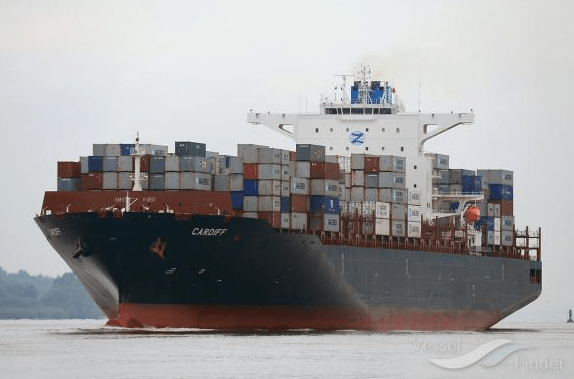A spate of attacks in the Gulf of Guinea region off the coast of West Africa, the latest, last week’s double attack on the Maersk Cardiff which saw crew retreat to the vessel’s citadel awaiting rescue from the security forces, appears to have prompted the carrier’s call to arms.
[s2If is_user_logged_in()]The Maersk Cardiff attack came a month after a similar attempt to board a Maersk vessel, the Maersk Cadiz, in the region.
According to security specialists, Dryad Global, the container shipping line says security for vessels and crews in the Gulf of Guinea so poor that it may be life-threatening to sail in the pirate-plagued waters.
“It is unacceptable in this day and age that seafarers cannot perform their jobs of ensuring a vital supply chain for this region without having to worry about the risk of piracy,” said Aslak Ross, head of marine standards at Maersk. “The risk has reached a level where effective military capacity needs to be deployed.”
The Gulf of Guinea accounted for 95% of the 135 hostages taken in 22 separate instances, and 100% of the hijackings that occurred, according to International Maritime Bureau statistics. “The attacks have pushed up insurance and other costs for shippers operating off West Africa, with some resorting to hiring escort vessels manned by armed navy personnel,” said Dryad Global.
Denmark’s Minister of Defence, Trine Bramsen, also raised concerns on the regional security, arguing that European countries should collaborate on a joint naval mission to the Gulf of Guinea, that will ensure the protection of commercial shipping in the region. “But other European players seem reticent to commit to the initiative,” according to Dryad.
Jakob Larsen, head of maritime security at the Baltic and International Maritime Council (BIMCO) believes the solution lies in regional governments securing their waters up to a 12-mile limit and at that point major naval powers could patrol the area beyond that limit with helicopters based on the vessels.
But Larsen added, “There is little international appetite for getting involved in Nigeria’s security problems.”
John Justice, CEO of DG Risk Group, a company that specialises in West Africa risk management reportedly said the region is woefully under resourced and this may be one of the only options.
“Countries in West Africa affected by piracy desperately want to reduce incidents of maritime piracy and bring stability back to the region to improve the commercial and domestic situation. They have the intent, but their navies lack the resources and support to implement change. Meanwhile, other international navies are spread extremely thin across other global operations that they see as higher priority.”
That means the only solution may be to look to a private maritime security model.[/s2If]
[s2If !is_user_logged_in()]Please login or register to read the rest of the story[/s2If]







